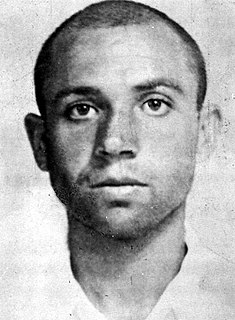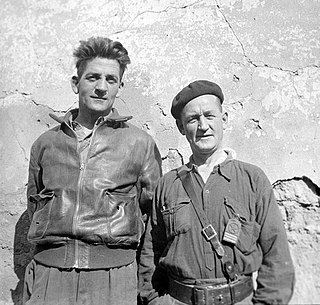 W
WGiuseppe Cenni was an Italian officer and aviator. A Major in the Regia Aeronautica, he is a legend of the Italian Air Force: he was awarded the Gold Medal of Military Valor and six silver medals for military valor, 2nd class German Iron Cross, the transition to effective permanent service and two promotions for war merit, three Crosses to the merit of war; more than 200 war actions, 750 hours of war flight out of a total of 1,460; two wars fought as a protagonist, eight victories in Spain, where he is among the best hunting aces, facing even seven months of very harsh imprisonment, and in the Second World War he is the undisputed ace of dive bombing; he endured the combat loss, in the last war, of 19 pilots, 16 crew members and 13 specialists from her own department; at just 28 years old, he is the youngest Stormo commander of the Regia Aeronautica, Stormo who will be one of the few to be decorated with a gold medal; in seven years he passed from second lieutenant to major in effective permanent service, acting as lieutenant colonel; aerobatic instructor and champion in gliding, where he won national titles and was part of the Olympic group. These are the bare but eloquent numbers of Giuseppe Cenni.
 W
WRandulf Dalland was a Norwegian politician for the Communist Party.
 W
WRobert Andrew "Bob" Doyle was a communist activist and soldier from Ireland. He was active in two armed conflicts; the Spanish Civil War as a member of the International Brigades and the Second World War as a member of the British Empire's Merchant Navy.
 W
WMiguel Hernández Gilabert was a 20th-century Spanish-language poet and playwright associated with the Generation of '27 and the Generation of '36 movements. Born and raised in a family of low resources, he was self-taught in what refers to literature, and struggled against an unfavourable environment to build up his intellectual education, such as a father who physically abused him for spending time with books instead of working, and who took him out of school as soon as he finished his primary education. At school, he became a friend of Ramón Sijé, a well-educated boy who lent and recommended books to Hernández, and whose death would inspire his most famous poem, Elegy.
 W
WJosip Križaj, also known by the Italianized name Giuseppe Krizai, nicknamed Pepi, was a Slovene (Yugoslav) military pilot and a veteran of the Spanish Civil War.
 W
WBert "Yank" Levy was a Canadian soldier, socialist, military instructor and author/pamphleteer of one of the first manuals on guerrilla warfare, which was widely circulated with more than a half million published. He served with irregular forces in several parts of the world in the 1920s and 1930s, most notably in the Spanish Civil War, and was a significant figure at the Osterley Park training school for the British Home Guard during World War II. Similar combat training was provided to forces in the United States and Canada, and he was an itinerant lecturer and provocateur on the subject.
 W
WDezső Révai was a Hungarian photographer and photo journalist who is mainly known for his photographs taken during the Spanish Civil War.
 W
WFrank Ryan was an Irish politician, journalist, intelligence agent and paramilitary activist. He first came to prominence as an Irish republican activist at University College Dublin and fought for the Irish Republican Army during the Irish Civil War. Ryan fell under the influence of Peadar O'Donnell, an advocate of Marxist-Leninism within Irish republicanism, which resulted in him breaking with the IRA and becoming involved with founding a new political organisation, the Republican Congress, and editing its associated newspaper: An Phoblacht.
 W
WRosario Sánchez Mora was a Spanish female Republican veteran of the Spanish Civil War. She was nicknamed la Dinamitera for her expertise with explosives, and was a Republican heroine in the Spanish Civil War.
 W
WGheza or Géza Vida, also known as Grigore, was a Romanian–Hungarian sculptor, engraver, industrial worker and communist militant, one of the most renowned artists of Maramureș region. The descendant of ethnic Romanian and Slovak miners, he was born in the Hungarian segment of Austria-Hungary. Raised by his mother after his father's death in World War I, he received financial support from local benefactors, who cultivated his artistic skill, particularly as a woodcarver. A citizen of Romania after the union of 1918, he was forced to drop out of school by economic circumstances, and worked for years in various industries and businesses, while also discovering his passion for beekeeping and gardening. He was drawn into far-left politics during the Great Depression, when he came to be influenced by radical artists such as Alexandru Ziffer, Aurel Popp, Vasile Kazar and Iosif Klein, who also introduced him to avant-garde experimentation. Vida was co-opted into the Union of Communist Youth and subsequently the Communist Party, producing propaganda art for both; this activity led to his temporary arrest in 1932 and 1933. A labor organizer, he helped establish the Artists' Trade Union and its branch in Baia Mare.